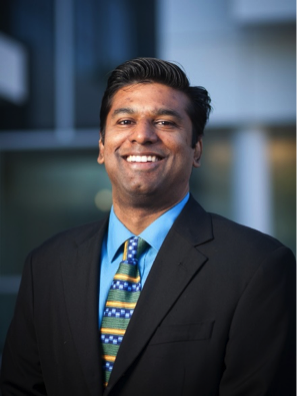Colloquia & Guest Speakers
Hybrid adaptive optics for faster, deeper, volumetric optical coherence microscopy
Steven Adie, Cornell University
Monday, October 29, 2018
3 p.m.
Goergen 101

Abstract:
Wavefront shaping and computed imaging methods have generated a lot of excitement in the optical imaging community because of their ability to compensate for sample-induced wavefront distortions, and enable high-resolution volumetric microscopy. In this talk I will present our recent work on ‘hybrid adaptive optics’ (hyAO), which is a new approach for optical coherence microscopy (OCM) that combines hardware adaptive optics and computational adaptive optics. HyAO enables the ‘work’ of image formation to be split in new ways between hardware and computation, allowing the strengths of one approach to compensate for the weaknesses of the other. Using hyAO we have significantly increased the usable depth range of OCM data, and suppressed the effects of multiple scattering and speckle in reconstructed OCM volumes. These capabilities are demonstrated via measurements in scattering phantoms, and time-lapse volumetric imaging in live 3D cell culture. Our results suggest that hyAO is a promising approach for expanding the spatiotemporal coverage of OCM, and enabling ultra-deep volumetric microscopy.
Bio:
Steven G. Adie is an Assistant Professor of Biomedical Engineering at Cornell University. He completed a BSc with First Class Honors in Chemical Physics in 1997 and a PhD in Electrical and Electronic Engineering in 2007, both from The University of Western Australia. Between his undergraduate and graduate studies he worked as a Research Engineer at Q-Vis Limited – a startup company to commercialize solid-state laser technology for LASIK eye surgery. After completing his PhD, he did a postdoc in the Biophotonics Imaging Laboratory at the Beckman Institute for Advanced Science and Technology at the University of Illinois at Urbana-Champaign. In 2013 he started as an Assistant Professor in the Meinig School of Biomedical Engineering at Cornell University, where his group develops novel optical imaging approaches, primarily based on optical coherence tomography. Dr. Adie is the recipient of the NIBIB Trailblazer Award, NSF CAREER Award, and the Cornell Discovery and Innovation Research Seed Award.
Location: Goergen 101
Refreshments will be served.
